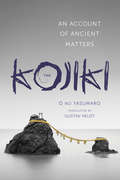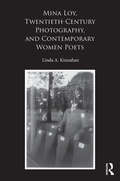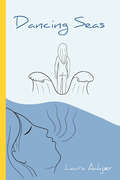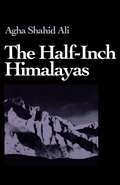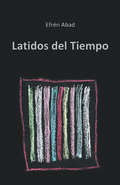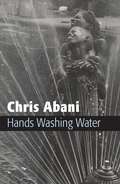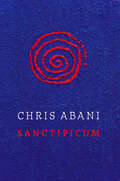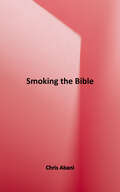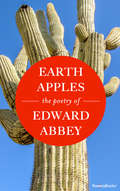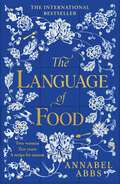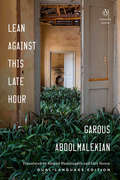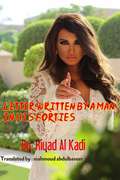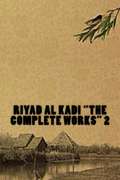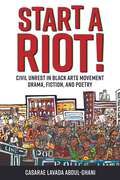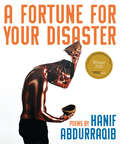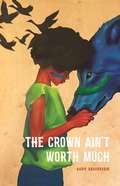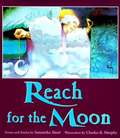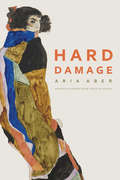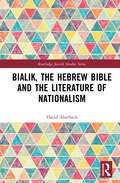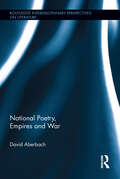- Table View
- List View
أسواق الذهب
by أحمد شوقىقلْ لا أعرِف الرِّقّ، وتقيَّد بالواجب وتقيَّد بالحقّ؛ الحرية وما هِيَه؟ "الحُمَيراءُ" الغالية، فِتنةُ القرون الخالية، وطَلِبةُ النفوسِ العالية؛ غِذاءُ الطّبائع، ومادّةُ الشرائع، وأُمُّ الوسائل والذَّرائع؛ بنتُ العلم إذا عمّ، والخلق إذا تمّ، وربيبة الصبر الجميل والعمل الجمّ؛ الجهلُ يئدُها، والصغائرُ تُفسدُها، والفُرْقةُ تُبعدُها؛ تكبيرةُ الوجود، في أُذُن المولود؛ وتحية الدُّنيا له إذا وصل، وصيْحة الحياة به إذا نَصَل؛ هاتِفٌ منَ السماءِ يقولُ له: يا ابنَ آدم؛ حَسْبُكَ من الأسماءِ عبدُ الله وسيّدُ العالَم، وهي القابلة التي تستقبله، ثم تسرُّهُ وتُسَرْبلُه، وهي المهدُ والتميمَة، والمُرضعُ الكريمة، المنجبة كـ "حليمة". ألبانُها حياة، وأحضانُها جنَّات. وأنفاسُها طيِّبات. العزيزُ من وُلدَ بين سَحْرِها ونَحْرها، وتعلق بصدرِها، ولعِبَ على كَتِفها وحِجرها، وترعرعَ بين خِدرها وسِترها.. ضجيعةُ موسى في التابوت، وَجاوَرَتْه في دار الطاغوت، والعصا التي توكأ عليها، والنَّارُ التي عشَا إليها، جبلّةُ المَسيح، السِّيدِ السَّميح، وإنجيلُه، الذي حاربُه جيلُه، وسَبيلُه، الذي جانَبَهُ قَبيلُه، طِينةُ محمدٍ عن نفسِه، عن قومِه، عن أمسِه، عن يومه، أنسابٌ عالية، وأحسابٌ زاكية، وملوكٌ بادية، لم يَدنهم طاغية، وهي رُوحُ بيانِه، ومُنحدَر السُّوَر على لسانِه، الحرِّية، عقدُ الملك، وعهدُ المَلْك، وسًكان الفُلْك، يدُ القلم، على الأمم، ومِنحة الفكر، ونفحة الشعر وقصيدة الدهر، لا يُستَعْظَمُ فيها قرْبان، ولو كان الخليفة عثمان بن عفان، جنينٌ يحمَلُ به في أيام المحْنَة، وتحتَ أفياء الفتنة، وحينَ البغي سيرة السَّامَّة ، والعدوان وتيرة العامَّة، وعندَما تناهى غفلة السواد، وتفاقم عَبث القوَّاد، وبين الدَّم المطلول، والسيف المسلول، والنظم المحلول، وكذلك كان الرُّسلُ يولدون عندَ عموم الجهالة، ويُبعثون حين طمُوم الضلالة؛ فإذا كَملَتْ مدَّتُه. وطلَعتْ غُرَّتهُ، وسطعَتْ أُسِرَّتُه، وصحَّتْ في المهد إمرتُه، بدّلت الحالَ غيرَ الحال، وجاءَ رجالٌ بعدَ الرِّجَال؛ دينٌ ينفسحُ للصادقِ والمنافق، وسوقٌ يتَّسع للكاسِد والنَّافق، مولودٌ حمْلُهُ قرُون، ووضعُهُ سِنُون، وحَداثتُه أشغالٌ وشئون، وأهوالٌ وشجون، فرحِمَ الله كلَّ من وطَّأ ومهَّد، وهيَّأ وتعهَّد، ثم استشهدَ قبلَ أن يشهَد. إذا أحرزت الأُممُ الحرِّيَّة أتت السيادةُ من نفسِها، وسعت الإمارةُ على رأسِها، وبُنِيَت الحضارةُ من أُسِّها؛ فهي الآمرُ الوازع، القليلُ المُنازِع، النبيلُ المشاربِ والمَنَازع؛ الذي لا يتخذ شِيعة، ولا صنيعة، ولا يَزْدهي بخديعة؛ خازنٌ ساهر، وحاسبٌ ماهر؛ دانقُ الجماعة بذمةٍ منهُ وأمان، ودِرْهَمُهم في حِرْزهِ دِرْهَمَان. "فيا ليلى" ماذا مِن أترَاب، وارَيْتِ التراب؟ وأخدان، أسلمتِ للديدان؟ عُمَّالٌ للحق عُمَّار، كانوا الشُّموسَ والأقمار، فأصبحوا على أفواه الرُّكَّاب والسُّمار؛ وأين قيسُك المعولِ؟ ومجنونُك الأوَّل؟ حائطُ الحقُّ الأطوَل، وفارسُ الحقيقةِ الأجوَل؛ أين مصطفى؟ زينُ الشباب، ورَيْحان الأحباب. وأوَّلُ من دَفع الباب، وأبرزَ النَّاب، وزأرَ دون الغاب؟...
أميرة الأندلس
by أحمد شوقى"الملك نشوان ومعه مضحكه مقلاص يدنو من زورق على الوادي الكبير فيثب فيه ويقول" الملك : انظر يا مقلاص إلى هذا الزورق ما ألطفه، صدق القول: كل صغير لطيف. مقلاص : إلا وظيفتي في قصرك فإنها لا لطيفة ولا شريفة، وإن هذا الزورق قد ينقلب فيأخذ شكل النعش، ولن يكون النعشُ لطيفًا أبدًا. الملك : هبه انقلب يا مقلاص فصار نعشًا، أليس النعشُ مركبَ كل حي وإن طالتْ سلامته! مقلاص : أما أنا فيعفيني الملك. الملك : لا يا مقلاص لا أعفيك، ولا أحسبك تدعني أسير في لجة النهر وحدي وأنا كما تراني نشوان. مقلاص : وإن كان ولابد أيها الملك فإني أقترح.. الملك : وما تقترح؟ مقلاص : أن أكون أنا المجدِّفَ وحدي. الملك : ولماذا؟ مقلاص : الأمر بيِّن! التيار مجنون، والسكر مجنون، وأنت سلطان وكل سلطان مجنون. وهذا الزورق خشبة لا عقل لها فهو أيضًا مجنون؛ وإني أربأ بحياتي أيها الملك أن أجمع عليها مجانين أربعة. الملك : (مستضحكًا) لا يكون إلا ما اقترحتَ يا مقلاص، تعال اركب وجدف وحدك واترك لي أنا الدفة. مقلاص : أما هذا فنعم. وإني أرجو أن تكون دفة هذا المركب الصغير أحسن مصيرًا في يديك من دفة المملكة. الملك : (مستضحكًا) تعال ثب؛ هات يدك. (مقلاص ينزل إلى الزورق ويأخذ المجدافين). الملك : انظر يا مقلاص وراءك، إني أرى قاربًا يندفع نحونا مسرعًا كأنه حوت مطارد مذعور. مقلاص : هو ذا قد دنا منا يا مولاي، فأحسن مسك الدفة واجتنب الصدمة، وأنا أزوده عنا بمجدافي هذا وأضربه ضربة تقذف به إلى الشاطئ الآخر من النهر. الملك : إياك أن تفعل بل ائسره، فلابد لنا أن نؤدب هذا الشاب المغرور، فإني أرى الملاح فتى كريم الهيئة فهو لاشك من أبناء أعيان أشبيلية. (يصطدم الزورقان ويظهر مقلاص ارتباكًا وجبنًا، فيقبض الملك على الزورق المهاجم بيد قوية ويقول لمقلاص) الملك : اقذف الآن به إن استطعت إلى الشاطئ الآخر من النهر (ثم يلتفت إلى الشاب الملاح ويقول) مكانك أيها الغلام الوقاح، ما هذه الجرأة على التيار وعلى شبابك هذا الغض النضير! وما غرك بالملك حتى قربت عودك من عوده تريد أن تأخذ عليه الطريق. الملاح : مولاي إن الرعية يهفون، وإن الملوك يعفون، وزورقي إنما اندفع بقوة التيار القاهر فوافق مرور مركبك المحروس، فكان ما كان مما أعتذر للملك منه. الملك : (بصوت منخفض) ويح أُذني ماذا تسمع؟ هذا الصوت أعرفه؟ (ثم يلتفت إلى الملاح قائلاً): قد عرفت أيها الفتى من نحن، فعرفنا بنفسك. (يرفع الملاح قناعه) الملك : (صائحًا) بثينة! الأميرة : (الملاح) أجل أيها الملك ابنتك وأمتك بثينة. الملك : عجبًا! أأنتِ هنا بين العبب والتيار، وعلى هذا العود الذي يشفق أبوك من ركوبه، وأبوك من تعلمين أشجع العرب قلبًا؟ الأميرة : ولم لا تكون ابنة الملك شجاعة القلب مثله! إن الأسد لا يلد إلا اللباة. الملك : (يهدأ غضبه) ومن أين مجيئكِ الساعة يا بثينة؟
The Kojiki: An Account of Ancient Matters (Translations from the Asian Classics)
by No Yasumaro ŌJapan's oldest surviving narrative, the eighth-century Kojiki, chronicles the mythical origins of its islands and their ruling dynasty through a diverse array of genealogies, tales, and songs that have helped to shape the modern nation's views of its ancient past. Gustav Heldt's engaging new translation of this revered classic aims to make the Kojiki accessible to contemporary readers while staying true to the distinctively dramatic and evocative appeal of the original's language. It conveys the rhythms that structure the Kojiki's animated style of storytelling and translates the names of its many people and places to clarify their significance within the narrative. An introduction, glossaries, maps, and bibliographies offer a wealth of additional information about Japan's earliest extant record of its history, literature, and religion.
Mina Loy, Twentieth-Century Photography, and Contemporary Women Poets
by Linda A. KinnahanIn Mina Loy, Twentieth-Century Photography, and Contemporary Women Poets, Linda A. Kinnahan explores the making of Mina Loy’s late modernist poetics in relation to photography’s ascendance, by the mid-twentieth century, as a distinctively modern force shaping representation and perception. As photography develops over the course of the century as an art form, social tool, and cultural force, Loy’s relationship to a range of photographic cultures emerging in the first half of the twentieth century suggests how we might understand not only the intriguing work of this poet, but also the shaping impact of photography and new technologies of vision upon modernist poetics. Framing Loy’s encounters with photography through intersections of portraiture, Surrealism, fashion, documentary, and photojournalism, Kinnahan draws correspondences between Loy’s late poetry and visual discourses of the body, urban poverty, and war, discerning how a visual rhetoric of gender often underlies these mappings and connections. In her final chapter, Kinnahan examines two contemporary poets who directly engage the camera’s modern impact –Kathleen Fraser and Caroline Bergvall – to explore the questions posed in their work about the particular relation of the camera, the photographic image, and the construction of gender in the late twentieth century.
Dancing Seas
by Laura AakjærThis is a collection of savioursWithout whom I would not have survivedIt tells tales About heartbreak so severe one wasn’t sure one would survive itAnd of losing, and therefore feeling lostLosing, and therefore feeling empoweredIt’s about wanting to get better, but not sure if one ever can.This collection will prove that it is possibleBut that it is okay to feel like it isn’tI know becauseWhen the flood cameThe words taught me how to floatWhen the waves tossed me aroundI already knew how to flyDancing Seas, by the Danish writer Laura Aakjær, is composed of more than a hundred autobiographical poems divided into the themes of ‘Falling’, ‘Floating’ and ‘Flying’.Laura’s poems, most of them a few lines long, use their position on the page to enhance the impact of her precisely chosen words. Despite their brevity, they manage to encompass a wide variety of moods: from profound grief to swooning ecstasy; from a delicate wistfulness to a raging defiance.
Letters from the Heart
by Seema AarellaA poem is best formed when it comes undisturbed in its rawness and realness straight from the heart that feels and emotes unfathomable desires.
Corridor: Miniature Edition (Wesleyan New Poets)
by Jonathan AaronPoetry that springs from the collision of memory, dream, and history, Jonathan Aaron's narratives and lyrics develop in unpredictable, often unlikely ways toward moments of surprising disclosure. The poems in Corridor look back on actual or fictional events in history (the fate of a foolhardy Roman commander, the musings of a fourth-century farmer who saw the Huns), celebrate modern adventures of the imagination such as filmmaker Luis Bunuel and novelist/fabulist Julio Cortazar, explore moments of a private vision (a man recalls his addiction to cigarettes, a woman tries to communicate with a water monster), recast the narrative spells of a ballad - "Serial Nocturne," the collection's longest work, revisits and renews the age-old story of the demon lover. Different as they are, these poems are driven by an underlying impulse to portray characters as odds with the worlds they inhabit, people who are therefore all the more of those worlds, individuals whose dilemmas and crises all have something to tell us about the struggle of moral consciousness to discover itself.
Punragaman Sampurn Shayari Mariz: પુનરાગમન સંપૂર્ણ શાયરી ‘મરીઝ’
by Apurv Aasharપુનરાગમન સંપૂર્ણ શાયરી ‘મરીઝ’
Latidos del tiempo
by Efrén Abad<P>Este libro de poesía se presenta como un intento de indagar espacios interiores, tanto sentimentales como conceptuales, a través de la disciplina lingüística del soneto, puesta al servicio de una visión inmanente y exploradora de uno mismo y de la experiencia temporal o vital. <P>Cada uno de estos sonetos responde a una necesidad íntima de ofrecer un cauce emocional a las ensoñaciones que flotan en la memoria y en la conciencia del autor. <P>Esta necesidad de expresión personal aparece acompañada de valores poéticos densos y contagiosos a todos los lectores. <P>El mundo se detiene y deja sitio a lo inamovible, a lo eterno. Es como si el tiempo se quedase hipnotizado y el limitado yo alcanzase la morada encantada del todo.
Hands Washing Water
by Chris Abani"Chris Abani's poetry resonates with a devastating beauty which cuts through to the heart of human strength."--Pride Hands Washing Water is Chris Abani's fourth poetry collection--a mischievous book of displacement, exile, ancestry, and subversive humor. The central section, "Buffalo Women," is a Civil War correspondence between lovers that plays on our assumptions about war, gender, morality, and politics. Sweetest Henri, I know we promised to be honest, one to the other, but your recent missive, though welcome as any epistle from you, filled me with a dread that clung like dampness to wet wood. I am terrified for your immortal soul, dear sweet Henri. This mad war of Lincoln is infecting you with a sickness too depraved to even address. . .Abani's writing is ruthless, at times traumatic, and consistently filled with surprising twists and turns.
Sanctificum
by Chris Abani"Abani . . . explores place and humor, exile and freedom with poems of experience and imagination . . . [he] enters the wound with a boldness that avoids nothing. Highly recommended." --Library Journal"Stunning poems." --New HumanistA self-described "zealot of optimism," poet and novelist Chris Abani bravely travels into the charged intersections of atrocity and love, politics and religion, loss and renewal. In poems of devastating beauty, he investigates complex personal history, family, and romantic love.Sanctificum, Abani's fifth collection of poetry, is his most personal and ambitious book. Utilizing religious ritual, the Nigerian Igbo language, and reggae rhythms, Abani creates a post-racial, liturgical love song that covers the globe from Abuja to Los Angeles.I say hibiscus and mean innocence.I say guava and mean childhood.I say mosquito netting and mean loss.I say father and it means only that.Happen that we all dream, but the sea is only sea.Happen that we call upon God but it is only a breezeruffling a prayer book in a small churchwhere benches groan in the heat . . . Chris Abani was born in Nigeria in 1966 and published his first novel at sixteen. He was imprisoned for his writings, and after his release he eventually moved to the United States. He is the author of ten books of poetry and fiction, including the best-selling novel GraceLand. He teaches at the University of California-Riverside and lives in Los Angeles.
Smoking the Bible
by Chris AbaniSmoking the Bible is an arresting collection of poems thick with feeling, shaped by Chris Abani’s astounding command of form and metaphor. These poems reveal the personal story of two brothers―one elegizing the other―and the larger story of a man in exile: exile of geography, culture, and memory. What we experience in this emotionally generous collection is a deep spiritual reckoning that draws on ancient African traditions of belief, and an intellectual vivacity drawing on various wisdom literatures and traditions. Abani illustrates the connective geography between harm, regret, and release, as poems move through landscapes of Nigeria, the Midwestern United States, adulthood, and childhood. One has the sense of entering a whole and complex world of the imagination in reading this collection. There is no artifice here, no affectation; and these poems are a study in the very grace of image.
Earth Apples: The Poetry of Edward Abbey
by Edward AbbeyPoems about love and landscapes by the author of the classic Desert Solitaire, an &“environmentalist, nature writer, novelist and all-around iconoclast&” (The New York Times). While better known for his nature writing and his comic classic The Monkey Wrench Gang, Edward Abbey was also an enthusiastic creator of verse. The New York Times called his memoir Desert Solitaire &“deeply poetic&”—and now Earth Apples gives us his actual poetry, in Abbey&’s first and only collection. Whether writing about vast desert landscapes, New York City, or a love of bawdy women, Abbey's verse is eloquent, irreverent, and unapologetically passionate. The poems gathered here, published digitally for the first time, are culled from Abbey&’s journals and give an insightful and unique glance into the mind of this literary legend.
The Language of Food: "Mouth-watering and sensuous, a real feast for the imagination" BRIDGET COLLINS
by Annabel Abbs'A sensual feast of a novel, written with elegance, beauty, charm and skill in a voice that is both lyrical and unique' Santa Montefiore Eliza Acton, despite having never before boiled an egg, became one of the world&’s most successful cookery writers, revolutionizing cooking and cookbooks around the world. Her story is fascinating, uplifting and truly inspiring.Told in alternate voices by the award-winning author of The Joyce Girl, and with recipes that leap to life from the page, The Language of Food by Annabel Abbs is the most thought-provoking and page-turning historical novel you&’ll read this year, exploring the enduring struggle for female freedom, the power of female friendship, the creativity and quiet joy of cooking and the poetry of food, all while bringing Eliza Action out of the archives and back into the public eye. &‘I love Abbs&’s writing and the extraordinary, hidden stories she unearths. Eliza Acton is her best discovery yet&’ Clare Pooley'A literary - and culinary - triumph!' Hazel Gaynor &‘Exhilarating to read - thoughtful, heart-warming and poignant, with a quiet intelligence and elegance that does its heroine proud&’ Bridget Collins 'A sumptuous banquet of a book that nourished me and satisfied me just as Eliza Acton&’s meals would have... I adored it' Polly Crosby &‘Wonderful... Abbs is such a good story teller. She catches period atmosphere and character so well&’ Vanessa Nicolson 'Two of my favourite topics in one elegantly written novel - women&’s lives and food history. I absolutely loved it' Polly Russell 'A story of courage, unlikely friendship and an exceptional character, told in vibrant and immersive prose' Caroline Scott &‘Richly imagined and emotionally tender&’ Pen Vogler 'Characters that leap off the page, a fascinating story and so much atmosphere, you feel you're in the kitchen with Eliza - I loved it.' Frances Quinn 'Clever, unsentimental, beautifully detailed and quietly riveting' Elizabeth Buchan, author of Two Women in Rome
Lean Against This Late Hour (Penguin Poets)
by Garous AbdolmalekianA vivid, affecting portrait of life in the shadow of violence and loss, for readers of both English and PersianThe first selection of poems by renowned Iranian poet Garous Abdolmalekian to appear in English, this collection is a mesmerizing, disorienting descent into the trauma of loss and its aftermath. In spare lines, Abdolmalekian conjures surreal, cinematic images that pan wide as deftly as they narrow into intimate focus. Time is a thread come unspooled: pain arrives before the wound, and the dead wait for sunrise. Abdolmalekian resists definitive separations between cause and effect, life and death, or heaven and hell, and challenges our sense of what is fixed and what is unsettled and permeable. Though the speakers in these poems are witnesses to the deforming effects of grief and memory, they remain alive to curiosity, to the pleasure of companionship, and to other ways of being and seeing. Lean Against This Late Hour illuminates the images we conjure in the face of abandonment and ruin, and finds them by turns frightening, bewildering, ethereal, and defiant. "This time," a disembodied voice commands, "send us a prophet who only listens."
Letter Written by a Man in His Forties: Poems - Arabic -
by Mahmoud Abdulbaseer Riyad Al Kadi'Letter Written by a Man in His Forties' is the translated version of a set of Arabic poems written by Riyad Al Kadi, a novelist and a poet-writer.
THE COMPLETE WORKS 2: Riyad Al Kadi
by Mahmoud Abdulbaseer Riyad Al KadiThi is the second volume of the completes works of Riyad Al Kadi. It contains poems about love and other related themes.
Start a Riot!: Civil Unrest in Black Arts Movement Drama, Fiction, and Poetry (Margaret Walker Alexander Series in African American Studies)
by Casarae Lavada Abdul-GhaniWhile the legacy of Black urban rebellions during the turbulent 1960s continues to permeate throughout US histories and discourses, scholars seldom explore within scholarship examining Black Cultural Production, artist-writers of the Black Arts Movement (BAM) that addressed civil unrest, specifically riots, in their artistic writings. Start a Riot! Civil Unrest in Black Arts Movement Drama, Fiction, and Poetry analyzes riot iconography and its usefulness as a political strategy of protestation. Through a mixed-methods approach of literary close-reading, historical, and sociological analysis, Casarae Lavada Abdul-Ghani considers how BAM artist-writers like Amiri Baraka (LeRoi Jones), Ben Caldwell, Gwendolyn Brooks, Sonia Sanchez, and Henry Dumas challenge misconceptions regarding Black protest through experimental explorations in their writings. Representations of riots became more pronounced in the 1960s as pivotal leaders shaping Black consciousness, such as Malcolm X and Martin Luther King Jr., were assassinated. BAM artist-writers sought to override the public's interpretation in their literary exposés that a riot’s disjointed and disorderly methods led to more chaos than reparative justice. Start a Riot! uncovers how BAM artist-writers expose anti-Black racism and, by extension, the United States' inability to compromise with Black America on matters related to citizenship rights, housing (in)security, economic inequality, and education—tenets emphasized during the Black Power Movement. Abdul-Ghani argues that BAM artist-writers did not merely write literature that reflected a spirit of protest; in many cases, they understood their texts, themselves, as acts of protest.
A Fortune for Your Disaster
by Hanif Abdurraqib“When an author’s unmitigated brilliance shows up on every page, it’s tempting to skip a description and just say, Read this! Such is the case with this breathlessly powerful, deceptively breezy book of poetry.” —Booklist, Starred Review In his much-anticipated follow-up to The Crown Ain't Worth Much, poet, essayist, biographer, and music critic Hanif Abdurraqib has written a book of poems about how one rebuilds oneself after a heartbreak, the kind that renders them a different version of themselves than the one they knew. It's a book about a mother's death, and admitting that Michael Jordan pushed off, about forgiveness, and how none of the author's black friends wanted to listen to "Don't Stop Believin'." It's about wrestling with histories, personal and shared. Abdurraqib uses touchstones from the world outside—from Marvin Gaye to Nikola Tesla to his neighbor's dogs—to create a mirror, inside of which every angle presents a new possibility.
The Crown Ain't Worth Much (Button Poetry)
by Hanif Abdurraqib Michael MlekodayThe Crown Ain't Worth Much, Hanif Abdurraqib's first full-length collection, is a sharp and vulnerable portrayal of city life in the United States. A regular columnist for MTV.com, Abdurraqib brings his interest in pop culture to these poems, analyzing race, gender, family, and the love that finally holds us together even as it threatens to break us. Terrance Hayes writes that Abdurraqib "bridges the bravado and bling of praise with the blood and tears of elegy." The poems in this collection are challenging and accessible at once, as they seek to render real human voices in moments of tragedy and celebration.
Reach for the Moon
by Samantha AbeelPoetry, written by a girl with learning disabilities, reflects her feelings and experiences.
Hard Damage (Prairie Schooner Book Prize in Poetry)
by Aria AberHard Damage works to relentlessly interrogate the self and its shortcomings. In lyric and documentary poems and essayistic fragments, Aria Aber explores the historical and personal implications of Afghan American relations. Drawing on material dating back to the 1950s, she considers the consequences of these relations—in particular the funding of the Afghan mujahedeen, which led to the Taliban and modern-day Islamic terrorism—for her family and the world at large. Invested in and suspicious of the pain of family and the shame of selfhood, the speakers of these richly evocative and musical poems mourn the magnitude of citizenship as a state of place and a state of mind. While Hard Damage is framed by free-verse poetry, the middle sections comprise a lyric essay in fragments and a long documentary poem. Aber explores Rilke in the original German, the urban melancholia of city life, inherited trauma, and displacement on both linguistic and environmental levels, while employing surrealist and eerily domestic imagery.
Bialik, the Hebrew Bible and the Literature of Nationalism (Routledge Jewish Studies Series)
by David AberbachThis book explores the life and poetry of Chaim Nachman Bialik (1873–1934) in the context of European national literature between the French Revolution and World War I, showing how he helped create a modern Hebrew national culture, spurring the revival of Hebrew as a spoken language. The author begins with Bialik’s background in the Tsarist Empire, contextualizing Jewish powerlessness in Eastern Europe in the late nineteenth century. As European anti-Semitism grew, Bialik emerged at the vanguard of a modern Hebrew national movement, building on ancient biblical and rabbinic tradition and speaking to Jewish concerns in neo-prophetic poems, love poems, poems for children, and folk poems. This book makes accessible a broad but representative selection of Bialik’s poetry in translation. Alongside this, a variety of national poets are considered from across Europe, including Solomos in Greece, Mickiewicz in Poland, Shevchenko in Ukraine, Njegoš in Serbia, Petőfi in Hungary, and Yeats in Ireland. Aberbach argues that Bialik as Jewish national poet cannot be understood except in the dual context of ancient Jewish nationalism and modern European nationalism, both political and cultural. Written in clear and accessible prose, this book will interest those studying modern European nationalism, Hebrew literature, Jewish history, and anti-Semitism.
National Poetry, Empires and War (Routledge Interdisciplinary Perspectives on Literature)
by David AberbachNationalism has given the world a genre of poetry bright with ideals of justice, freedom and the brotherhood of man, but also, at times, burning with humiliation and grievance, hatred and lust for revenge, driving human kind, as the Austrian poet Grillparzer put it, ‘From humanity via nationality to bestiality’. National Poetry, Empires and War considers national poetry, and its glorification of war, from ancient to modern times, in a series of historical, social and political perspectives. Starting with the Hebrew Bible and Homer and moving through the Crusades and examples of subsequent empires, this book has much on pre-modern national poetry but focuses chiefly on post-1789 poetry which emerged from the weakening and collapse of empires, as the idealistic liberalism of nationalism in the age of Byron, Whitman, D’Annunzio, Yeats, Bialik, and Kipling was replaced by darker purposes culminating in World War I and the rise of fascism. Many national poets are the subject of countless critical and biographical studies, but this book aims to give a panoramic view of national poetry as a whole. It will be of great interest to any scholars of nationalism, Jewish Studies, history, comparative literature, and general cultural studies.

